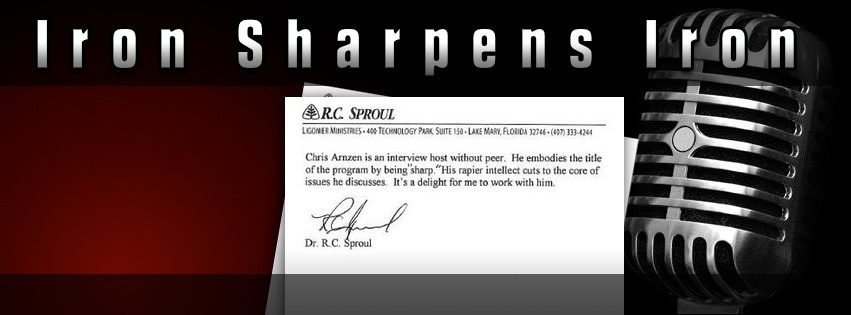




 |
|||||
 |
AT THE EVENING HOUR
Simple Talks on Spiritual Subjects
Ethelbert D. Warfield![]()
AT THE EVENING HOUR: Simple Talks on Spiritual Subjects by E.D. Warfield![]()
Ethelbert D. Warfield (1861-1936) was the younger brother of Benjamin B. Warfield, and a man who served Christ as did his older, more famous brother. These ten messages were delivered on Sunday afternoons to the students of Lafayette College where Dr. Warfield served as President from 1891-1915. ![]()
According to the author, "They have also in most cases been published in such papers as the Sunday School Times, the New York Observer, and the Presbyterian Messenger. They are now published in the hope that they may bring a message of cheer to others who are seeking to live for Christ and his service."![]()
The Contents are as follows -![]()
1) "Let Him Who Loves Me Follow Me"![]()
2) Loyalty to Evil![]()
3) Christian Aspiration![]()
4) The Lesson of Solomon's Decline![]()
5) The Longing of the Soul for God![]()
6) The Christian's 'Cordon Bleu'![]()
7) The Beauty of Boyhood![]()
8) True Manhood![]()
9) Responsibility![]()
10) College Life and College Learning![]()
THIS IS A VERY RARE VOLUME!![]()
Pre-Publication Special Price![]() SGCB Price: $7.25 (list price $12.00)
SGCB Price: $7.25 (list price $12.00)![]()
Order 10 or More Copies (50% Off)![]() SGCB Price: $6.00 (list price $12.00)
SGCB Price: $6.00 (list price $12.00)
ENTER THE EXACT QUANTITY INTO CART AND UPDATE QTY![]()
Additional Information
• Bio Sketches of Both Authors
Bio Sketches of Both Authors
![]()
Bio Sketches of Both Authors
Ethelbert Dudley Warfield (1861-1936) was born in Lexington, KY; son of William and Mary Cabell (Breckinridge) Warfield, and brother of Benjamin B. Warfield of Princeton Seminary fame. He attended a private school in Lexington, KY, amd was graduated from the College of New Jersey (Princeton University) A.B., 1882, A.M., 1885, and from Columbia Law School, LL.B., 1885. He was admitted to the Kentucky bar in June 1884, and to the NY bar in June 1885, and practiced law in Lexington from 1886-88. He served as president of Miami University, Oxford, OH 1888-91, also holding the chair of history; and in 1891 became president of Lafayette College, Easton, PA, and Blair professor of history and political science. He served in this capacity until 1914.
In 1899 he was ordained to the Presbyterian ministry, having previously served as a ruling elder and often as a member of the church courts. An honorary degree of LL.D. was conferred upon him by the College of New Jersey and by Miami University in 1891. He became president of Wilson Colege in Chambersburg, PA in 1915 and served until 1930. He passed away in 1936 in Chambersburg, after many years of fruitful ministry.
John Charles Ryle (1816-1900) was the first Anglican bishop of Liverpool.
Ryle was born at Macclesfield, and was educated at Eton and at Christ Church, Oxford, where he was Craven Scholar in 1836.
After holding a curacy at Exbury in Hampshire, he became rector of St Thomas's, Winchester (1843), rector of Helmingham, Suffolk (1844), vicar of Stradbroke (1861), honorary canon of Norwich (1872), and dean of Salisbury (1880). However before taking the latter office, he was advanced to the new see of Liverpool, where he remained until his resignation, which took place three months before his death at Lowestoft. His appointment to Liverpool was at the recommendation of the outgoing Prime Minister Benjamin Disraeli.
Ryle was a strong supporter of the evangelical school and a critic of Ritualism. Among his longer works are Christian Leaders of the Eighteenth Century (1869), Expository Thoughts on the Gospels (7 vols, 1856-69), Principles for Churchmen (1884).
His second son, Herbert Edward Ryle was also a bishop.
Thoroughly evangelical in his doctrine and uncompromising in his principles, J.C. Ryle was a prolific writer, vigorous preacher, and faithful pastor. He was born at Macclesfield and educated at Eton and Christ Church, Oxford.
He was a fine athlete who rowed and played Cricket for Oxford, where he took a first class degree in Greats and was offered a college fellowship (teaching position) which he declined. The son of a wealthy banker, he was destined for a career in politics before answering a call to ordained ministry.
He was spiritually awakened in 1838 while hearing Ephesians 2 read in church. He was ordained by Bishop Sumner at Winchester in 1842. For 38 years he was a parish vicar, first at Helmingham and later at Stradbrooke, in Suffolk. He became a leader of the evangelical party in the Church of England and was noted for his doctrinal essays and polemical writings.
In 1880, at age 64, he became the first bishop of Liverpool, at the recommendation of Prime Minister Benjamin Disraeli. He retired in 1900 at age 83 and died later the same year. He is buried in the All Saints' Church, Childwall, Liverpool.
In his diocese, he exercised a vigorous and straightforward preaching ministry, and was a faithful pastor to his clergy, exercising particular care over ordination retreats. He formed a clergy pension fund for his diocese and built over forty churches. Despite criticism, he put raising clergy salaries ahead of building a cathedral for his new diocese.
Ryle combined his commanding presence and vigorous advocacy of his principles with graciousness and warmth in his personal relations. Vast numbers of working men and women attended his special preaching meetings, and many became Christians.
